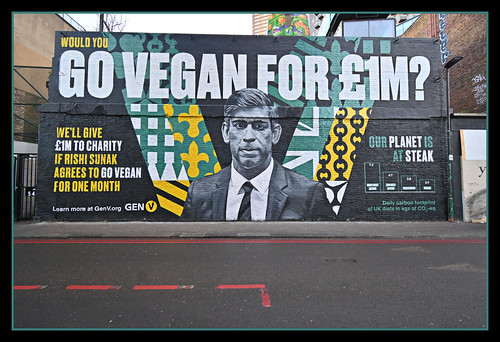In seeking to avert tragedy at Saturday’s protest march, Sunak has descended into farce
Sunak #Sunak

How to police a London demonstration should not be a political decision, whether for the prime minister, the home secretary or even an elected mayor. It is a decision for the police commissioner. The rally and march in London on Saturday is to protest against the stance of the government and the opposition on the Israel-Hamas war and to call for a ceasefire.
Staging it on the weekend of Armistice Day is certainly offensive to many people. It is a time normally reserved for honouring the dead of Britain’s past wars – not today’s wars in which Britain is not involved. But it will not clash, and the organisers of a Cenotaph event on the day have not objected.
Both Rishi Sunak and his home secretary, Suella Braverman, clearly wanted the demonstration banned. But expressing support for one side in a war and causing deep offence in doing so are not crimes in themselves. Being occasionally offended is the price that British citizens pay for living in a free country that values free speech. Crime is involved only when the consequences of that freedom get out of hand, when violence causes severe disruption to other people’s lives.
The Metropolitan police chief, Sir Mark Rowley, who also asked for the rally to be postponed, did not judge the risk of those consequences so great as to justify a ban. The organisers have undertaken to avoid the Armistice Day ceremonies both in timing and location. Rowley has come down on the side of freedom.
Of course, he may have misjudged. The wrong people may turn up and bad things may happen. He can deploy police to guard against this, up to a point, but beyond that point he is himself taking a risk. That is his job. What can only distort his decision is to have senior politicians interfering with it.
On Wednesday, Sunak summoned Rowley to Downing Street and promised to hold him “accountable” for the decision not to ban the march. The prime minister added that he regards the demonstration as “provocative and disrespectful” and “completely inappropriate”. He was seeking “reassurance” that the police would behave “robustly”. He claimed he was not “putting pressure” on Rowley in the matter, but that is rubbish. Why else was Rowley summoned to Downing Street? In the event, Sunak backed down and accepted Rowley’s “reassurances”.
The prime minister visits Kilburn police station in London with Metropolitan police commissioner Mark Rowley on 30 August 2023. Photograph: Simon Walker/No 10 Downing Street
That clearly had no effect on Braverman. She promptly leapt into print in the Times, flagrantly disagreeing with her boss, whose suggested changes to her article she apparently rejected. Her position in office must be near untenable. She called the rally a “hate march” and accused the Met police of bias against Israel, comparing its approach unfavourably with the tough treatment meted out by police to sectarians in Northern Ireland, football supporters and anti-lockdown campaigners. The Met were just a bunch of leftwingers.
Home secretaries are not media commentators. We shall never know what pro-Israeli demonstrations there might have been if Israel had stayed its hand after the horrors of 7 October. We know only where we now are. Pleading for an end to war, any war, cannot be regarded as a sin – or be suppressed for the risk of attracting agitators.
Rowley is appointed by and accountable to the mayor of London, Sadiq Khan, and to the home secretary, as well as to the Greater London Authority. He was appointed after his predecessor Cressida Dick’s hamfisted ousting by Khan, with orders to clean up the Met after years of malfunction and scandal. His task compares to that of a predecessor, Sir Robert Mark, who was ruthless in his campaign in the 1960s to rid the force of corrupt officers. He later said that totally critical to this was the support – public and confidential – of the then home secretary, Roy Jenkins.
Braverman is no Jenkins. With a law and order policy of her own, fashioned to her rightwing ambitions within the Conservative party, she is acting as Fool to Sunak’s increasingly tragic Lear. She spouts weekly outbursts on asylum seekers, prisons, homelessness and police bias – anything to grab a headline. She clearly jolted Sunak into his bizarre tough-on-crime measures in this week’s king’s speech.
Everything Sunak now says and does seems directed not at wisdom but at publicity. In this he is a parody of Tony Blair. He clearly lacks an experienced old-timer murmuring caution in his ear, of which all prime ministers have long felt the need. Every move he makes seems orchestrated by a press office.
In policing the coronation, the Met did possibly get it wrong in overreacting to anti-monarchist protesters. But the risk to an overwhelmingly popular occasion was genuine and the price of disruption would have been appalling. If now the prime minister thought Rowley was going off the rails, he should not have behaved like a banana republic president and summoned his police chief. He should have had a private chat with the home secretary or the mayor and discussed it with them.
Rowley’s accountability – which they have now put on the line – should have been reserved for the outcome, not questioned beforehand. As it was, both Sunak and Braverman in their different ways clearly just wanted to be seen hanging tough. They wanted to be able to say, should anything go wrong, “I told him so.”
Sunak would best guard his reputation by abandoning these daily gestures of populist appeal. He may have just a year to run, and his future is uncertain. But he would serve that future best by obeying the rigours of the constitution, sustaining his dignity and not playing to the gallery.